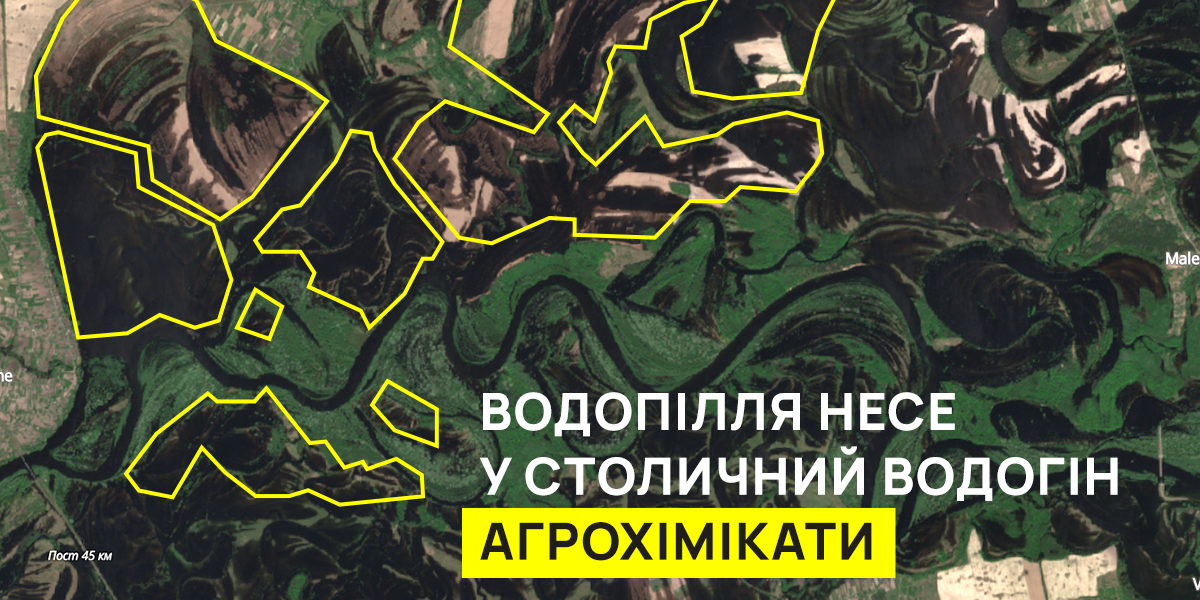Incredibly generous water on Ukrainian rivers this spring was useful to the defenders of our state and stopped a large number of enemy vehicles stuck in the swamps or unable to cross the river. The flood in Irpen restrained the attack on Kyiv, and the floods on the Siverskiy Donets still give Ukrainians a head start to strengthen their positions and bring the equipment provided by our partners.
At the same time, flooding on rivers is a threat. For several years of fighting the plowing of the steppes and meadows, we warned of this danger, but, with rare exceptions, no one paid attention. In recent years, Kyiv and Chernihiv regions have been massively ruining the Desna River valley, ignoring the status of the Emerald Network and environmental restrictions. The soils in the floodplain are poor, so they apply a lot of fertilizers and treat the area with pesticides.
This year’s floodwaters have already flooded a large number of plowed areas in the Desna Valley. Water-soluble agrochemicals enter the water from plowed areas and move further downstream. It is Desna that supplies drinking water to Kyiv, so the agrochemicals dissolved in it go to the capital’s water supply system.
Such pollution also has a cumulative effect, because going downstream, more and more new plowed meadows are flooded, and argochemicals are washed awayfrom them.
In addition to the threat to Kyiv, this situation is also detrimental to biodiversity: the fish population of the Dnieper and Desna is currently breeding. But it is still difficult to assess the extent of the impact on them. We can only say that there is such an effect, because all pesticides that are usually used by farmers have a universal chemical effect – they kill all living things.
We hope that attention will be paid to this problem by lawmakers who have not yet adopted changes to the legislation that would impose a moratorium on the plowing of natural ecosystems.







